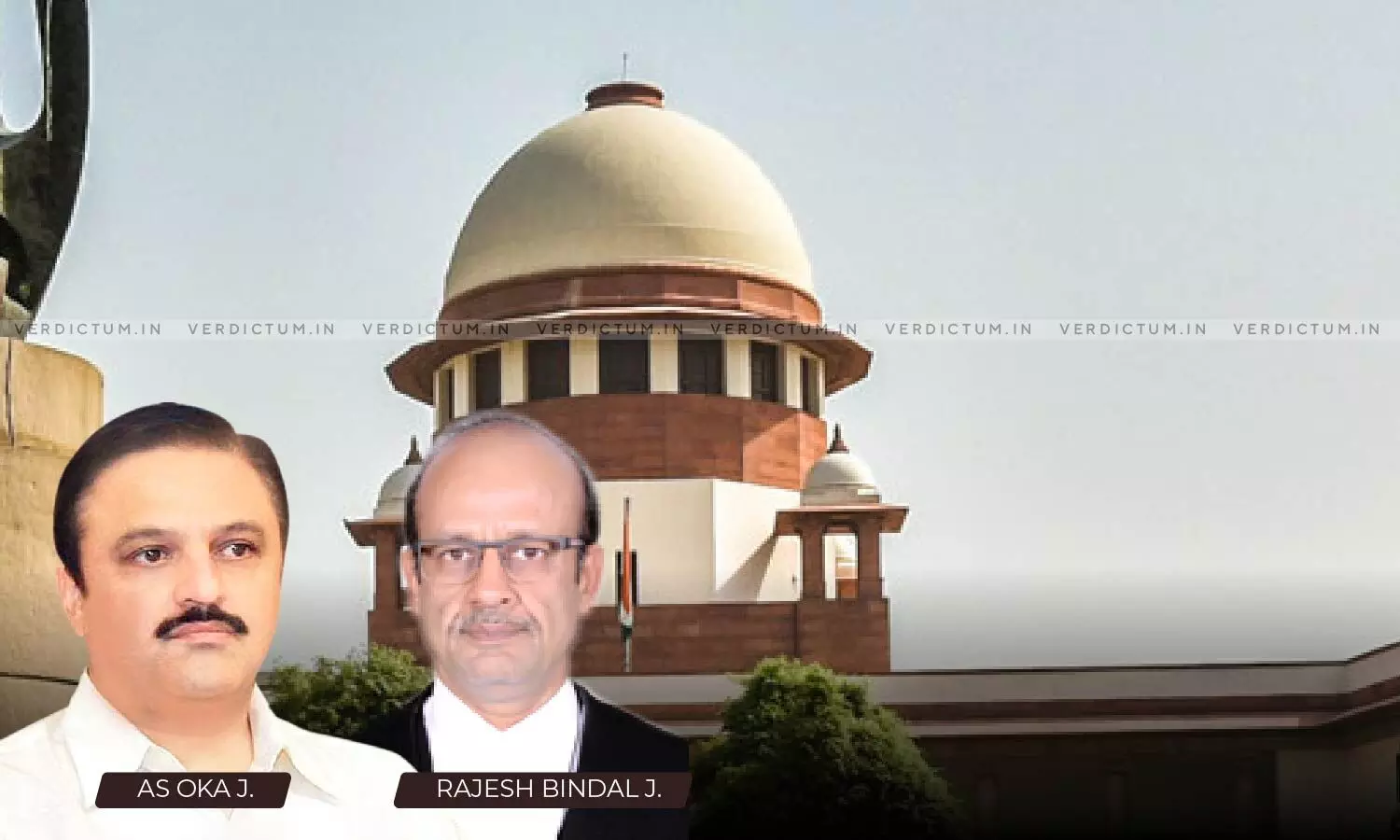
Not Safe To Base Conviction Only On Testimony Of Minor Witness: SC Acquits Man Convicted Of Murdering Mother Of Three Sons
 |
|The Supreme Court has acquitted a man who was convicted of killing a mother of three sons on the ground that it will not be safe to base the conviction only on the testimony of a minor witness.
The two-Judge Bench comprising Justice Abhay S. Oka and Justice Rajesh Bindal held, “After closely scrutinising the evidence of PW¬1 Ajay and considering what we have already observed, the possibility of the witness being tutored cannot be ruled out. There is no support or corroboration to the testimony of PW¬1 Ajay, apart from other deficiencies in the prosecution case, as pointed out above. In the facts of the case, it will not be safe to base the conviction only on the testimony of PW¬1 Ajay which does not inspire confidence.”
The Bench said that the Sessions Judge has not done his duty while scrutinizing the evidence of the minor witness.
Advocate Sunil Kumar Verma appeared on behalf of the appellant while AAG Birender Kumar Choudhary and Advocate Samar Vijay Singh appeared on behalf of the State.
Brief Facts -
The appellant had challenged the judgment passed by the Punjab and Haryana High Court by which his appeal against the order of conviction by the Sessions Court was dismissed. He was convicted for the offences punishable under Section 302 read with Section 34 of the IPC and Sections 449 and 324 of the IPC and was sentenced to suffer life imprisonment. An FIR was registered in this matter based on the statement of the 11-year-old boy who was the youngest of the three sons of the deceased mother.
As per the prosecution’s case, the minor and his mother were sleeping in their house which was locked from inside, and at about 1 a.m., the minor heard the noise of his mother. The co-accused by knife inflicted 6-7 blows on her stomach and chest and at that time, the appellant was holding the hands of the deceased and when the minor tried to rescue his mother, the co-accused inflicted injuries on him with the same knife. Thereafter, both the accused fled away through the window which they used to enter the house.
The Supreme Court in view of the facts and circumstances of the case noted, “The Court must make careful scrutiny of the evidence of a child witness. The Court must apply its mind to the question whether there is a possibility of the child witness being tutored. Therefore, scrutiny of the evidence of a child witness is required to be made by the Court with care and caution. … the role of the Judge who records the evidence is very crucial. He has to make a proper preliminary examination of the minor by putting appropriate questions to ascertain whether the minor is capable of understanding the questions put to him and is able to give rational answers.”
The Court further observed that the preliminary examination of the minor is very sketchy and that only three questions were put to him on the basis of which the Sessions Judge came to the conclusion that the witness was capable of giving answers to each and every question.
“… we have carefully scrutinised the evidence of the minor witness Ajay. … The incident had taken place after midnight. In the cross-examination, the witness stated that the accused, before coming to his house, had disconnected the electric supply. He denied the correctness of the suggestion that due to darkness; he did not recognise the assailant who assaulted his mother. He came out with the improved version in the cross-examination that accused no.1 had lit a matchstick and in the light of the matchstick, he recognised the assailants”, said the Court.
The Court further noted that it is very difficult to accept that the accused who gave 6 to 7 blows by his knife on the person of the deceased, would light a matchstick while assaulting the deceased.
“This is a case where an adverse inference will have to be drawn against the prosecution for non-examination of the milkman and the appellant’s father. … the shoes of the present appellant did not match the moulds of the imprint of the shoe taken by the prosecution”, also observed the Court.
Accordingly, the Apex Court allowed the appeal, acquitted the appellant, and set aside the judgment of conviction.
Cause Title- Pradeep v. The State of Haryana